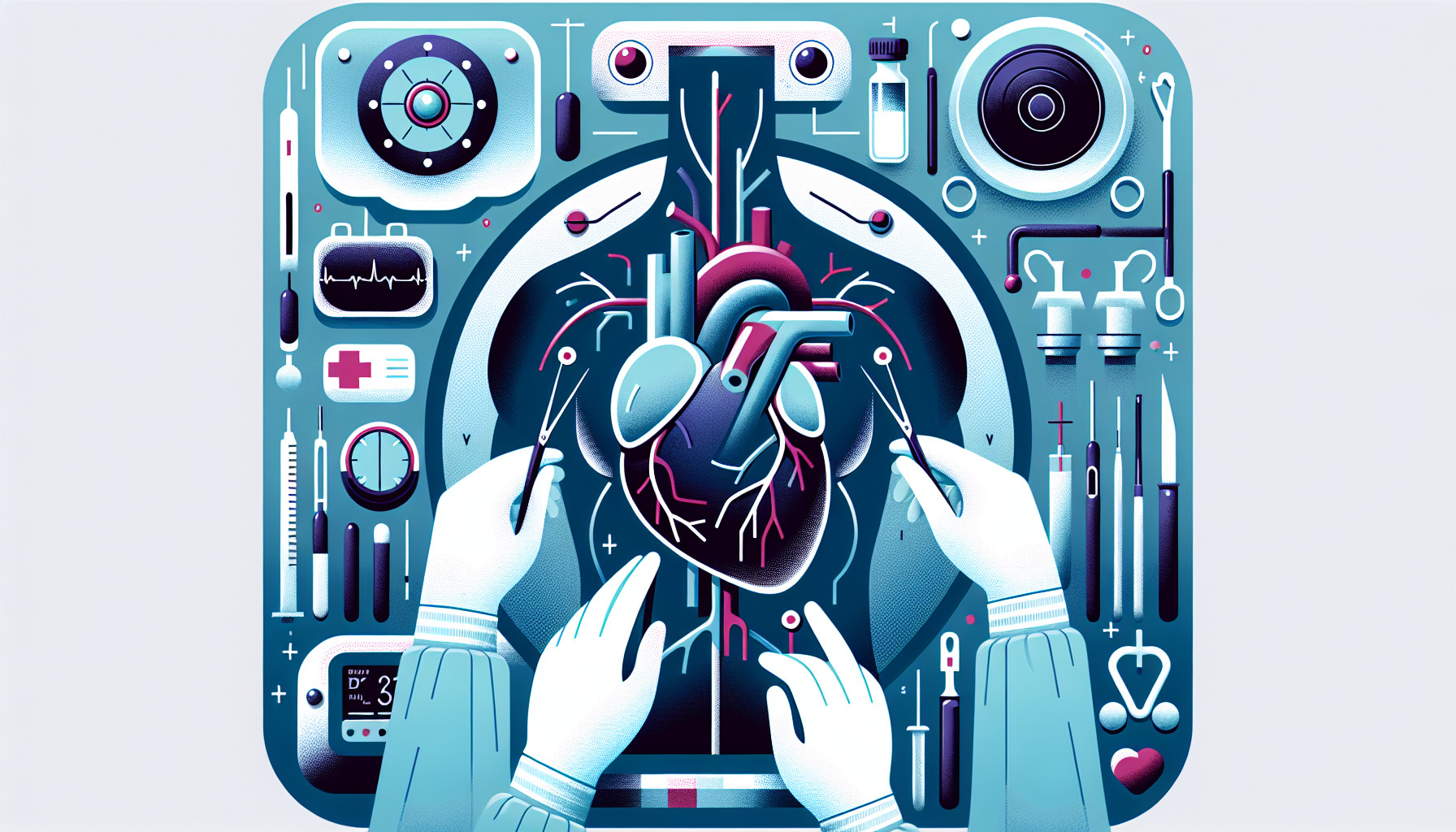Our Summary
This study looked at the trends and outcomes of repeat heart bypass surgery over two different periods: 1998-2004 and 2005-2021. The research found that the number of these surgeries has decreased over time, but is now stable. They also noticed that the method of surgery has changed, with a shift from using arteries from the chest (left internal thoracic artery) to using veins from the leg (saphenous vein graft).
The patients who underwent repeat heart bypass surgery in the more recent period (2005-2021) were older and more likely to have high blood pressure. Even though these patients had more health issues, the results of their surgeries were just as good as those from the earlier period. The study also found that there was no significant change in the number of patients with diabetes, smokers, or people with high cholesterol and heart attack history.
FAQs
- Has the number of repeat heart bypass surgeries increased or decreased over time?
- What changes in the method of heart bypass surgery were observed in this study?
- Was there a difference in the health conditions of patients undergoing repeat heart bypass surgery between the two studied periods?
Doctor’s Tip
One important tip a doctor might tell a patient about coronary artery bypass surgery is to maintain a healthy lifestyle after the procedure. This includes following a heart-healthy diet, getting regular exercise, quitting smoking, managing stress, and taking prescribed medications as directed. These lifestyle changes can help improve the long-term success of the surgery and reduce the risk of further heart complications. It is also important to attend follow-up appointments with your healthcare team to monitor your progress and address any concerns.
Suitable For
Patients who are typically recommended for coronary artery bypass surgery include those with severe blockages or narrowing in the coronary arteries, which can lead to chest pain (angina) or other symptoms of coronary artery disease. These patients may have already tried other treatments such as medication or lifestyle changes, but have not seen significant improvement in their symptoms.
Other factors that may indicate the need for coronary artery bypass surgery include:
- Multiple blockages in the coronary arteries
- Left main coronary artery disease
- Severe narrowing or blockage in the arteries that supply blood to the heart muscle
- Previous heart attack or history of heart disease
- Diabetes
- High blood pressure
- Smoking
- Family history of heart disease
Ultimately, the decision to recommend coronary artery bypass surgery is made on a case-by-case basis, taking into account the individual patient’s overall health, risk factors, and the severity of their coronary artery disease.
Timeline
Before coronary artery bypass surgery:
- Patient undergoes various tests and evaluations to determine the extent of coronary artery disease and the need for surgery
- Patient may undergo lifestyle changes, medication therapy, and other treatments to manage symptoms and improve heart health
- Patient may be advised to stop smoking, lose weight, and improve diet and exercise habits
- Patient may experience symptoms such as chest pain, shortness of breath, fatigue, and weakness
After coronary artery bypass surgery:
- Patient is monitored closely in the hospital for complications and to ensure proper healing
- Patient undergoes cardiac rehabilitation to improve heart health and recovery
- Patient may experience pain, swelling, and discomfort in the chest and incision site
- Patient may need to take medications for blood pressure, cholesterol, and other heart-related conditions
- Patient may need to make continued lifestyle changes to prevent future heart problems, including following a healthy diet and exercise plan
What to Ask Your Doctor
What are the potential risks and complications associated with coronary artery bypass surgery?
How long is the recovery period after coronary artery bypass surgery and what can I expect during this time?
Will I need to make any lifestyle changes or follow a specific diet after the surgery?
Are there any medications I will need to take after the surgery and for how long?
How often will I need follow-up appointments after the surgery and what will these appointments entail?
What signs or symptoms should I watch for that may indicate a problem with my heart after the surgery?
Are there any restrictions on physical activity or exercise following coronary artery bypass surgery?
How long will the benefits of the surgery last, and are there any potential future treatments or procedures I may need?
What are the success rates of repeat heart bypass surgery compared to the initial surgery?
What are the differences in using arteries versus veins for the bypass grafts, and how will this impact my recovery and long-term outcomes?
Reference
Authors: Sajja LR, Mannam G, Kamtam DN, Saikiran KVSS, Sompalli S. Journal: Asian Cardiovasc Thorac Ann. 2023 Feb;31(2):81-87. doi: 10.1177/02184923221138498. Epub 2022 Nov 10. PMID: 36366734
